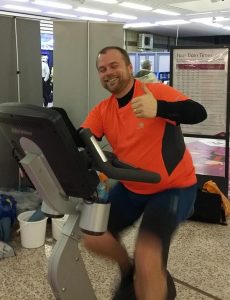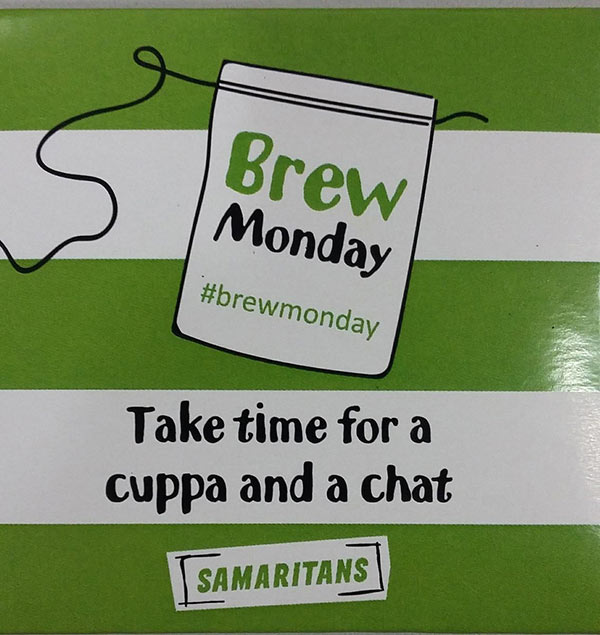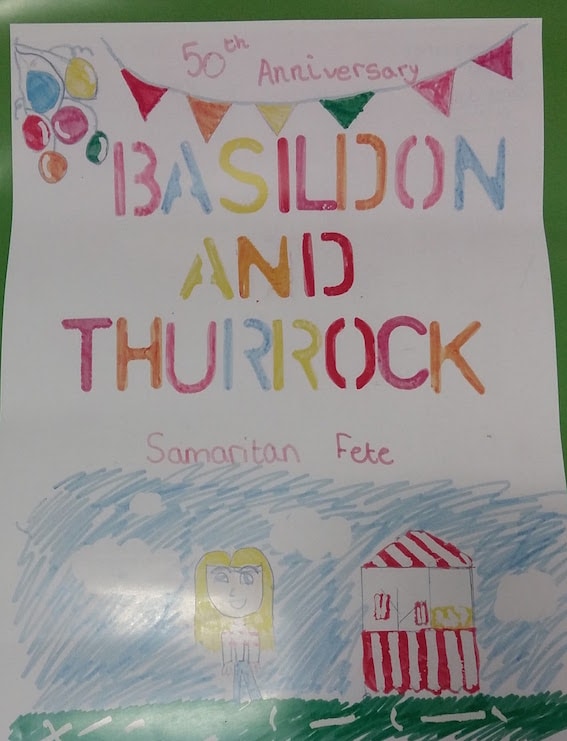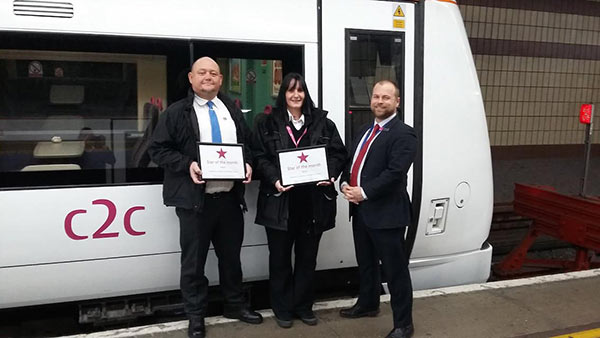We are Samaritans
We meet Iain Palmer, our Head of Revenue Protection and Security, to talk about our close work with the Samaritans, and how the amazing training they provide is helping bring about a decrease in deaths on the railway.

c2c’s relationship with Samaritans is vital to the safe running of the railway, not only for protecting the vulnerable people involved, but also for the fifty thousand people who travel on our trains everyday who need to get about their daily business.
Iain is a true advocate at c2c for the work that Samaritans do. He loves coming up with new and fun ways to raise money for the charity. You might have seen him in previous years getting sweaty on an exercise bike at Fenchurch Street where he rallied c2c staff across the business in a charity cycle event which collectively clocked up 800 miles between them to raise over £3,000 for Samaritans and RNIB (Royal National Institute of Blind people). He jokes “Now we’re TrenItalia, next time we’re going to race the Italians from Fenchurch street to Milan, and get customers on the bikes too”. It’s not just a massive ploy to keep fit, Iain organises all this because he knows how important the Samaritans are to the railway.
“The rail industry as a whole has a massive issue with fatalities” he explains. “If someone takes their own life at our stations that affects our staff, our customers – and not just the ones that are there at the time but the ones who come in afterwards.” But he stresses what is really important is the human side of the issue; “We’ve got a responsibility to help people who are feeling a certain way.”
This is where the Samaritans come in. Their course, Managing Suicidal Contacts, is run every few weeks and is regularly attended by c2c staff to give them an understanding of what someone experiencing difficult thoughts and feelings might be going through. It covers how a suicidal person might be behaving and how to talk to them. Iain says this is a real strength of the organisation; “What they do really well is explain how people can get to that stage, and make it relatable, so that a staff member might think ‘if that was my mum, or kid (or whoever) I’d want someone to go up and talk to them’.”
Around 200 members of our staff have completed the Managing Suicidal Contacts course (and thousands across the rail network) including station staff and our own British Transport Police unit. Iain cites this course having had a real impact on railway suicides. “We have seen, touch wood, less fatalities on our route.” He shares a report from Network Rail, which shows that over the past year deaths on the railway have decreased by 10% across the UK, and that life-saving interventions are 40% up. After the course staff feel confident chatting to people who might be feeling vulnerable. “Every time a member of staff goes up to someone and asks them ‘Are you OK?’ might be the moment that person decides ‘I’m not doing that now because somebody has asked me a question.”
Iain has real admiration for the staff who intervene when somebody needs help. He acknowledges “It’s a really big thing for the staff. It’s hard for them to do that.” Reeling off a number of exceptional c2c staff members he names drivers Dave and Steve, station staff Donna, Jackie, Titi, John and Emma, who have all stepped in and ended up potentially saving a life a real difference to people’s lives. In the same breath he admits he’s aware there are many more people who make interventions which go unnoticed behind the scenes. “But when we hear that someone has made an intervention, we tell the Samaritans, and they write a thank you letter also signed by Julian [c2c’s Managing Director], which we give to the member of staff. We know people don’t do it for the thank yous, they do it because they are humans and genuinely want to help others but a thank you definitely goes a long way. It gives people that extra bit of acknowledgement that keep them feeling supported in talking to people”.
Among those most affected when somebody takes their life on the railway are the train drivers themselves. “I really feel for the drivers,” says Iain, “when you’re driving a train that’s massively heavy and takes a long, long time to stop and there’s absolutely nothing you can do, must be heart-wrenching for them”. He adds “It’s also difficult for the managers of those members of staff as well, and so we (through the Samaritans) provide trauma support training.”




